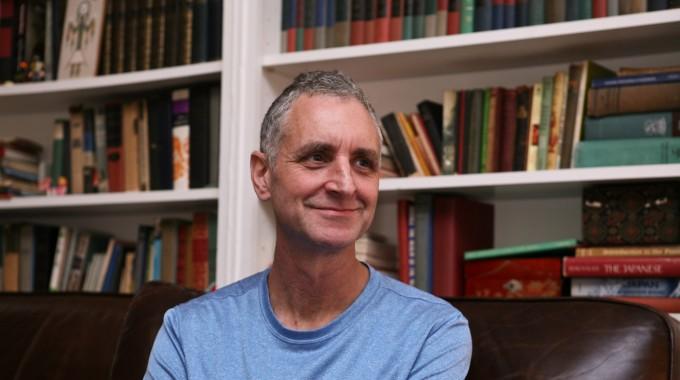
In the mid-twentieth century,
the genius and innovative capabilities of dozens of scientists came together to unleash the power of the atom—a scientific accomplishment responsible for shaking the world’s social and political landscape to its core. Today, nuclear weapons remain the most dangerous weapons available to humanity. Though the Cold War may be an increasingly distant memory, there are thousands of nuclear warheads in the world—many capable of being deployed at a moment’s notice—and each presents a unique set of challenges and risks. These weapons are part of the legacy left by a previous generation of scientists and, as such, they create a responsibility that remains an inheritance for scientists and the general public today.
This is an inheritance I feel in a very literal sense. My father, Vernon Hughes, was one of the young leaders involved in the development of radar at MIT during WWII and was an editor of the MIT series documenting this war effort. At a young age, interactions with my father and other notable physicists of his generation motivated me to pursue projects aimed at confronting one of WWII’s lingering products, the atomic bomb. Now, as a scientist and professor of physics at Columbia University, working on the very grounds from which the Manhattan Project began, I am aware of the need to address the pressing issues surrounding nuclear technologies and to engage the younger generation in these important topics.
The K=1 Project, Center for Nuclear Studies, grew from my efforts to foster within young scholars, beginning with Columbia University undergraduates, an interest in and a sophisticated understanding of the nuclear issues that face the world today. While nuclear weaponry is one central concern, it is not the only one. Nuclear technologies, including those relating to civilian power production, exist in an ecosystem of related but distinct concerns, each warranting our serious attention. Since it began in 2011, the K=1 Project, powered from the start by the efforts of bright and promising students, has grown to include collaborations with other universities and institutions and to address an ever widening set of issues.
With the aim of promoting informed, scientifically-guided public discussion on the topic of nuclear technologies, the K=1 Project offers unique and innovative programs and resources that provide future leaders, policy experts, and scientists with the tools to address the challenging nuclear issues faced by the world today. At the heart of our mission is education and inclusion, as only through collaboration on a massive scale can the necessary steps be made to assure our future. As such, we welcome you to utilize and engage with the resources the K=1 Project has made available and invite you to collaborate with us in our pursuit of security, safety, and sustainability.
Sincerely,
Emlyn Hughes
Founding Director, K=1 Project Center for Nuclear Studies
Columbia University
Related Pages
